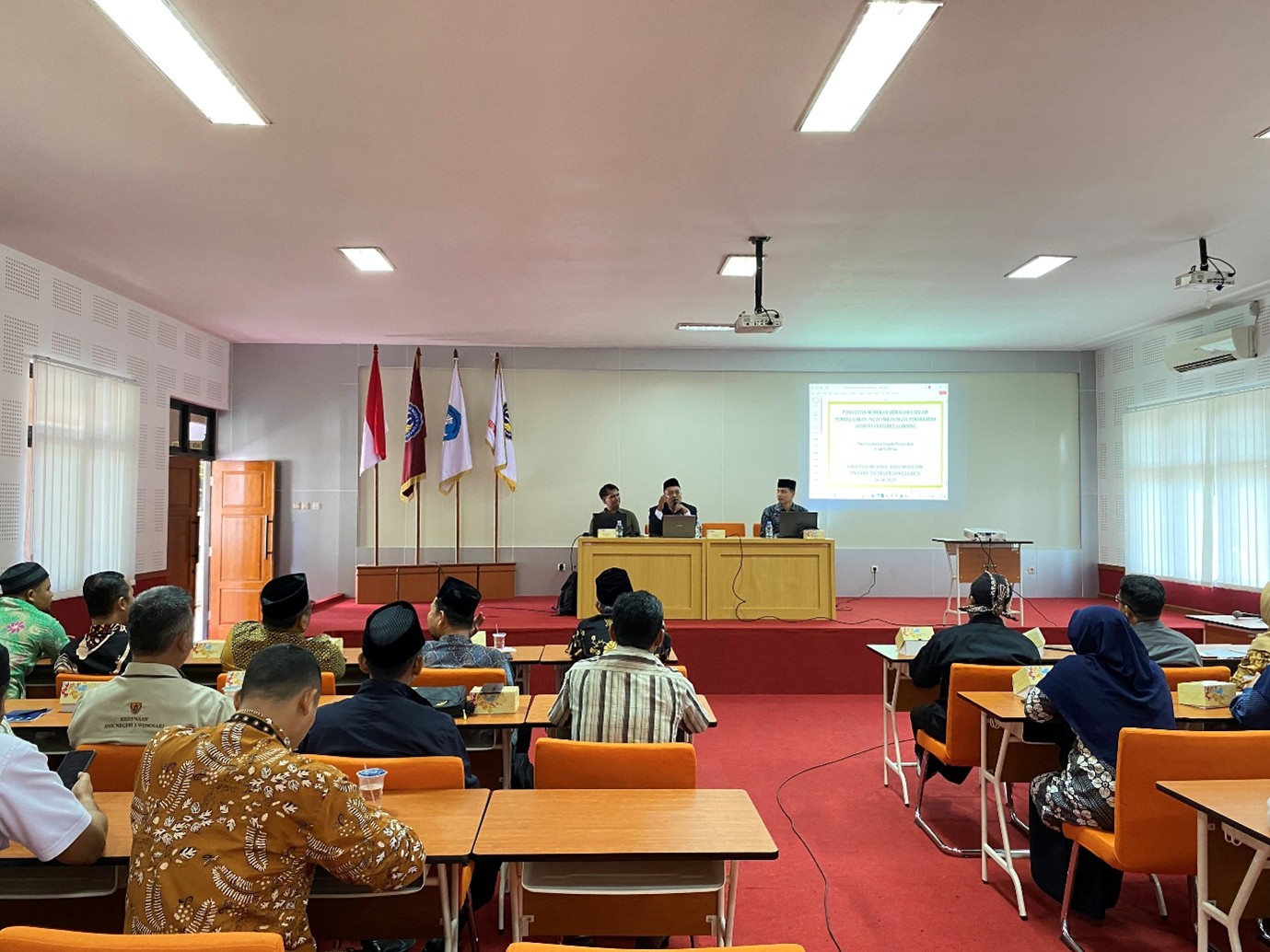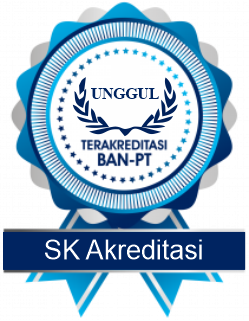You are here
SEMINAR ON STRENGTHENING RELIGIOUS MODERATION FOR ISLAMIC EDUCATION TEACHERS IN VOCATIONAL SCHOOLS IN THE SPECIAL REGION OF YOGYAKARTA
Primary tabs

Saturday (July 26) The community service team led by Prof. Dr. Marzuki, M.Ag and consisting of Dr. Fungki Febiantoni, M.Pd and Dr. Sulthon Abdul Aziz, M.SI from the Department of Civic Education, Faculty of Social and Political Sciences (FISIP), Yogyakarta State University (UNY), held a seminar on strengthening religious moderation for Islamic religious education teachers at vocational high schools in the Special Region of Yogyakarta at the Faculty of Social and Political Sciences, Yogyakarta State University, Sleman on Saturday, July 26, 2025. This activity was conducted in collaboration with the Islamic Religious Education Subject Teachers' Association (MGMP) in the Special Region of Yogyakarta as part of a partnership and collaboration in the field of social affairs.
The event took place in the Dissertation Hall, Building FISIP B, Faculty of Social and Political Sciences, and targeted Islamic religious education teachers at the vocational high school level in the Special Region of Yogyakarta. The activity was led by Prof. Dr. Marzuki, M.Ag, along with a team of lecturers and students from the PPKn program at FISIP UNY.
Prof. Dr. Marzuki, M.Ag, Dr. Sulthon Abdul Aziz, M.Si, and Dr. Fungki Febiantoni, M.Pd presented material on the importance of strengthening religious moderation for Islamic education teachers in the learning process to shape students with moderate and tolerant character.
The implementation of religious moderation in vocational schools is a very important topic in promoting tolerance and harmony among religious communities. Based on research, the implementation of religious moderation in vocational high schools can be carried out through several methods, such as: first, extracurricular activities, which can serve as a means to instill the values of religious moderation in students. Second, Islamic religious education (PAI) can be one way to instill the values of religious moderation in students. Third, school activities, such as special programs and activities that foster religious moderation, can also serve as a means for implementing religious moderation. The implementation of religious moderation in vocational high schools is expected to enhance tolerance and harmony among religious communities, as well as prevent radicalism and intolerance.
Through interactive and collaborative presentations, Islamic religious education teachers in vocational high schools gain added value in understanding effective religious moderation for students from Generation Z backgrounds.
Collaboration between universities and schools through lecturers, students, and Islamic education teachers demonstrates synergy in fostering religious moderation and cultivating moderate character in students to contribute to the development of a loving and peaceful Indonesia.
It is hoped that this activity will not only serve as a learning opportunity but also mark the beginning of growing awareness of religious moderation, particularly within the educational sphere, to nurture a generation that respects one another and looks toward a prosperous future for Indonesia.
Contact
Faculty of Social and Political Sciences Information Center :
- Tel: 0274-586168 psw 1455
- Fax: 0274-548201
- Email: fisip@uny.ac.id; humas_fisip@uny.ac.id
- Website: https://fisip.uny.ac.id/
Copyright © 2026,

